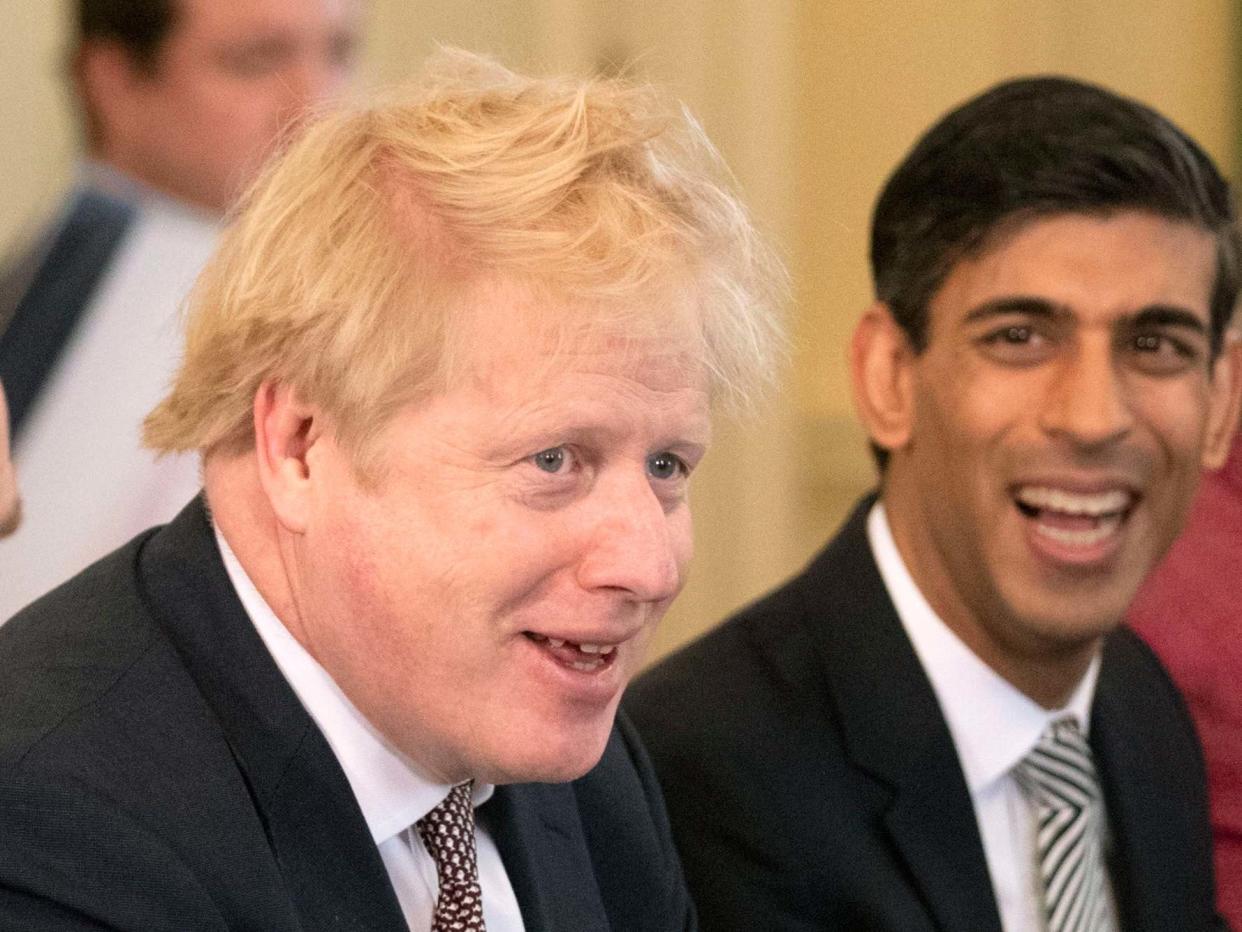Budget: Boris Johnson’s government set to spend more than Labour under Blair, says think tank

The newly appointed chancellor is poised to use his Budget to boost spending to higher levels than under Tony Blair’s government, according to a new think tank report.
Economic analysts at the Resolution Foundation said Whitehall spending could be set to rise to as much as £1 trillion for the first time by 2023-24, with tax hikes likely to be required.
Rishi Sunak is likely to use his Budget on 11 March to boost spending to 40 per cent of GDP, a figure higher than at any point Mr Blair’s tenure, the report said.
It comes after it emerged that Mr Sunak was planning to move parts of the Treasury to the north of England in a bid to show his party was listening to traditional Labour voters in “red wall” seats who defected to the Tories.
The chancellor is poised to water down strict fiscal rules, laid down by his predecessor Sajid Javid, to allow for higher spending, according to The Sunday Times.
The Resolution Foundation said the scheduled spending increase, which includes up to £100bn of extra capital spending and the fastest increase in day-to-day departmental spending since the early 2000s, would lift the government’s total managed annual expenditure above £1 trillion within four years.
Borrowing is also likely to rise at next month’s Budget, the report authors said, increasing from £41bn in 2018-19 to £64bn by 2021-22.
But extra spending would still not undo a decade of cuts, with £24bn required to reverse just half of the financial reductions to non-health departments, the think tank found.
Jack Leslie, an economist at the Resolution Foundation, said: “The chancellor’s big-spending plans to ‘level up’ the country through infrastructure projects will lead to a bigger state than at any point under Tony Blair, and marks a big shift for a traditionally small state Conservative Party.
“But new roads and rail lines are only part of the story for a government wishing to turn the corner on a decade of austerity.
“If the chancellor wants to increase spending on day-to-day public services in a fiscally responsible way he will have to change another of his party’s traditional priorities – lower taxes.
“Higher spending will require higher taxes.”
John McDonnell, the shadow chancellor, said even the most “hyped prediction” of the contents of the Budget would fail to make up what the Tories have cut over the past decade.
He said: “Even though the Tories at long last are following Labour’s policy of borrowing to invest in our infrastructure, the scale of spending will fail to tackle the decade of decline caused by the Tories and will not tackle the increasingly serious existential threat of climate change.
“Having raised expectations so high, inevitably people will be bitterly disappointed at this failure to deliver by Johnson and Cummings.”
Mr Sunak is expected to use his first Budget to announce that scores of the 1,500 jobs at the department will be moved to an “economic decision-making campus”.
A Treasury source said: “The chancellor wants to put the Treasury at the heart of the levelling-up agenda and wants to rethink how we make decisions that affect the whole of the UK.
“He wants to shift the gravity of economic decision away from the capital to our regions and nations – and setting up a new economic decision-making campus in the north of England will do that.
“It will be key in helping spread opportunity and prosperity to all, and allow the Treasury to access a more diverse range of talent, making it more reflective of the country as a whole.”

